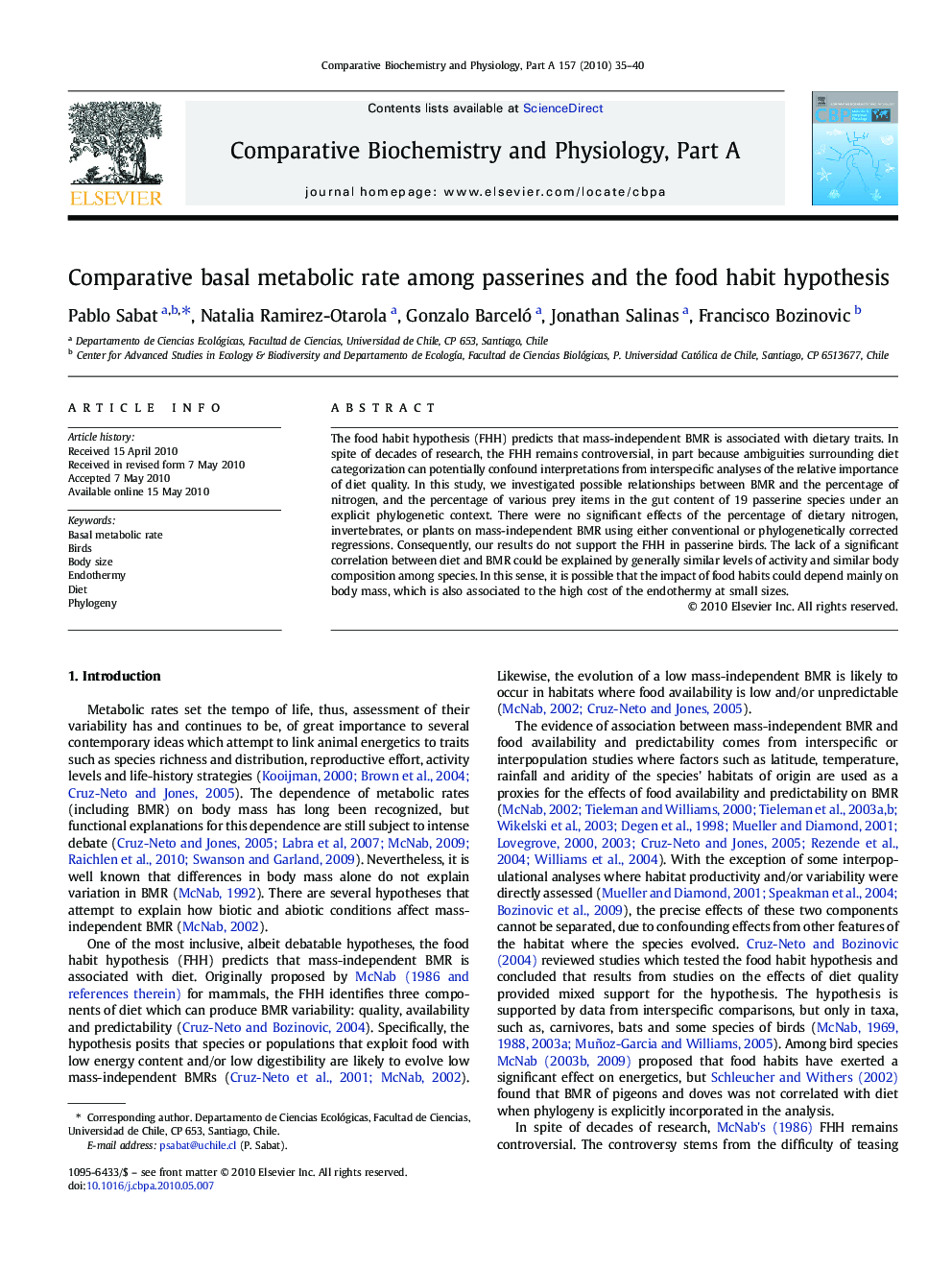| Article ID | Journal | Published Year | Pages | File Type |
|---|---|---|---|---|
| 1972861 | Comparative Biochemistry and Physiology Part A: Molecular & Integrative Physiology | 2010 | 6 Pages |
The food habit hypothesis (FHH) predicts that mass-independent BMR is associated with dietary traits. In spite of decades of research, the FHH remains controversial, in part because ambiguities surrounding diet categorization can potentially confound interpretations from interspecific analyses of the relative importance of diet quality. In this study, we investigated possible relationships between BMR and the percentage of nitrogen, and the percentage of various prey items in the gut content of 19 passerine species under an explicit phylogenetic context. There were no significant effects of the percentage of dietary nitrogen, invertebrates, or plants on mass-independent BMR using either conventional or phylogenetically corrected regressions. Consequently, our results do not support the FHH in passerine birds. The lack of a significant correlation between diet and BMR could be explained by generally similar levels of activity and similar body composition among species. In this sense, it is possible that the impact of food habits could depend mainly on body mass, which is also associated to the high cost of the endothermy at small sizes.
